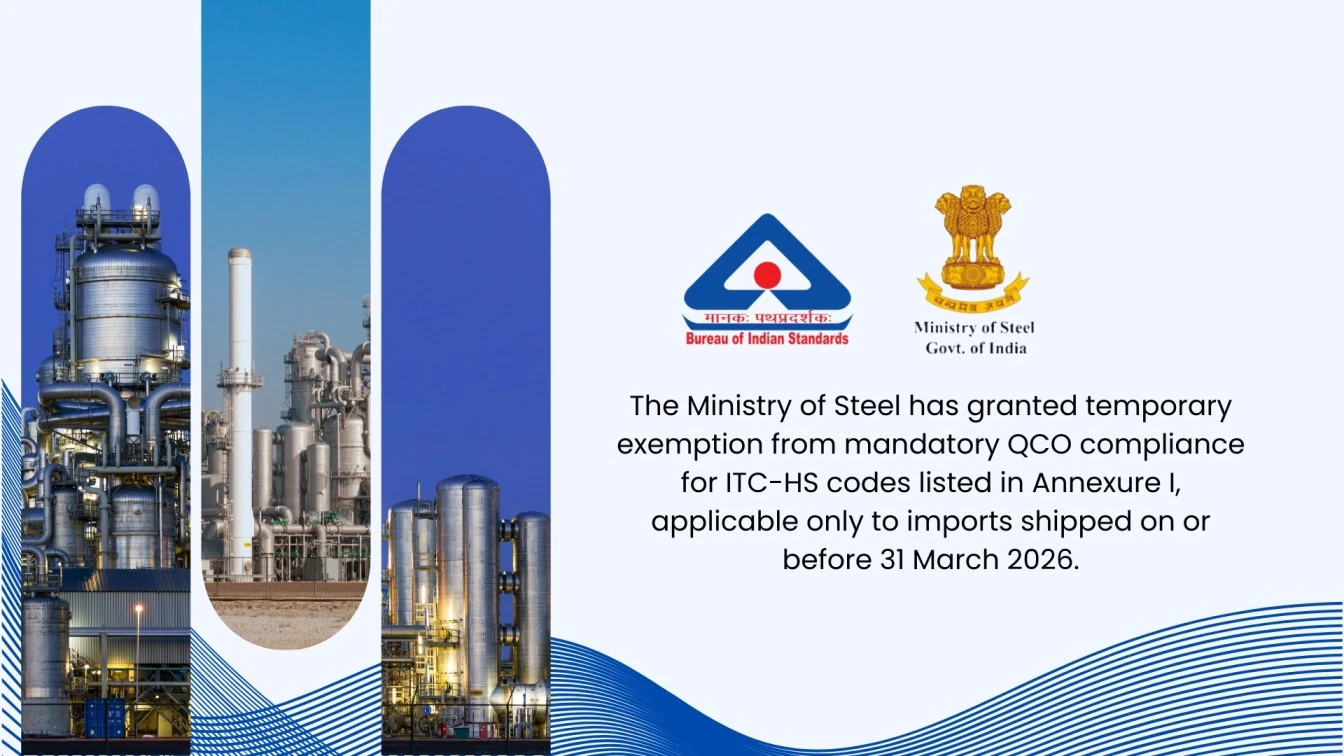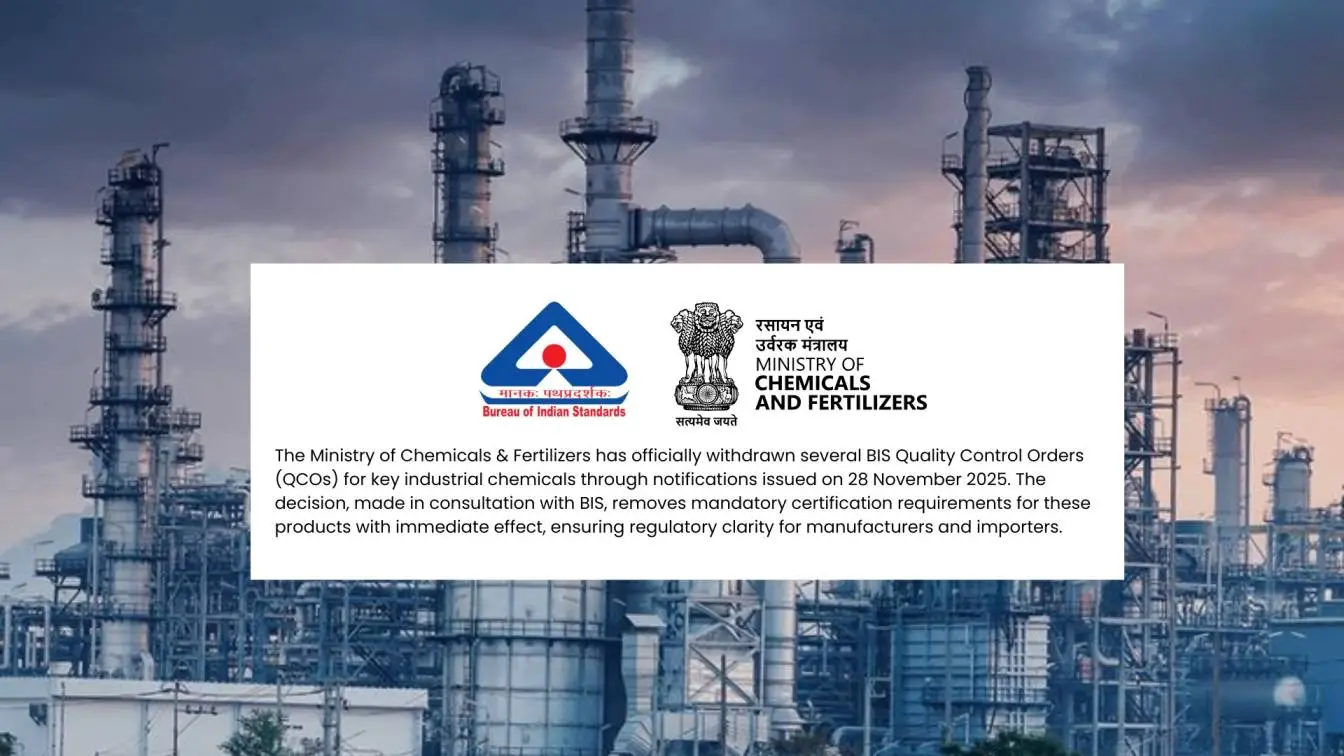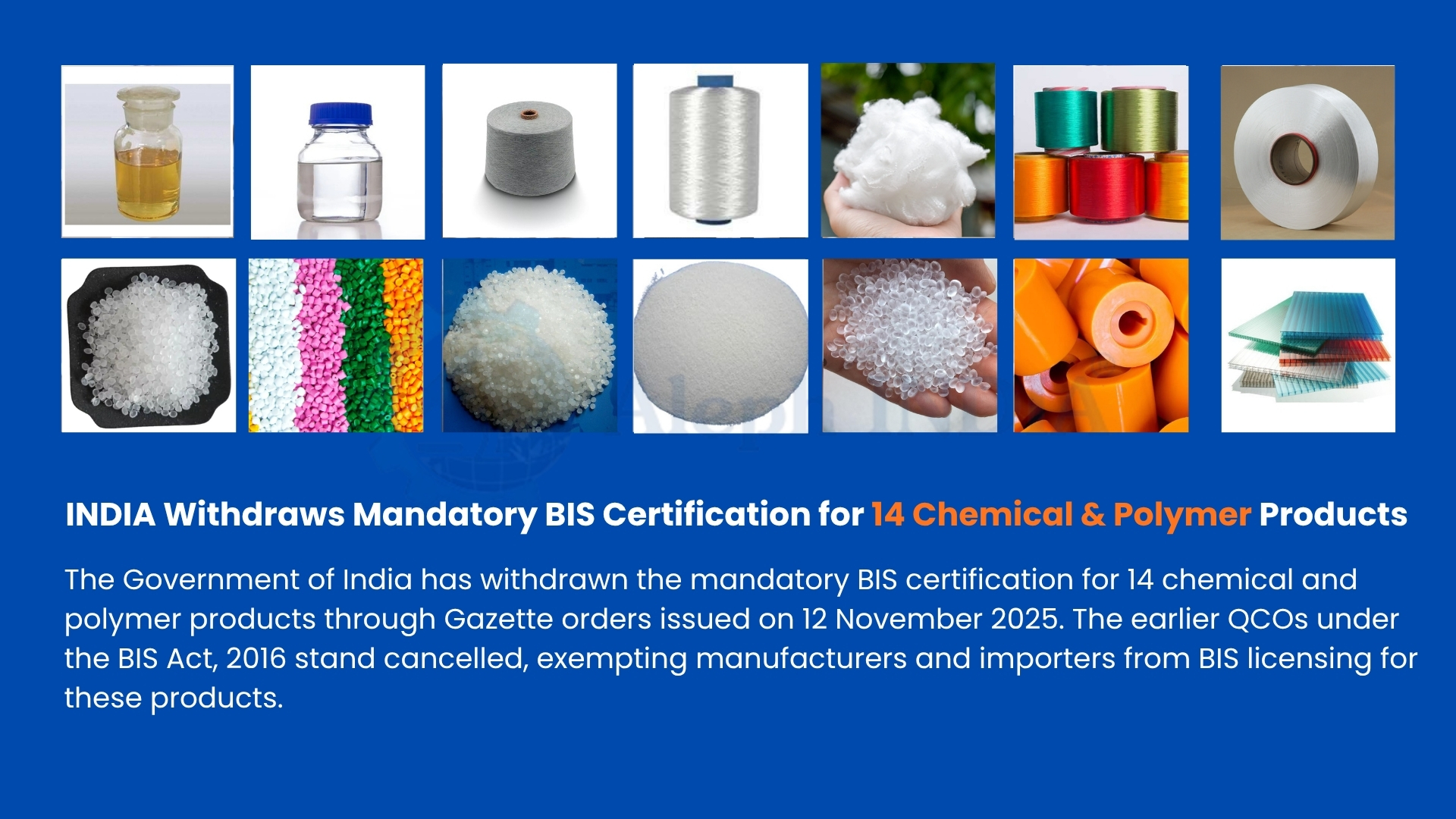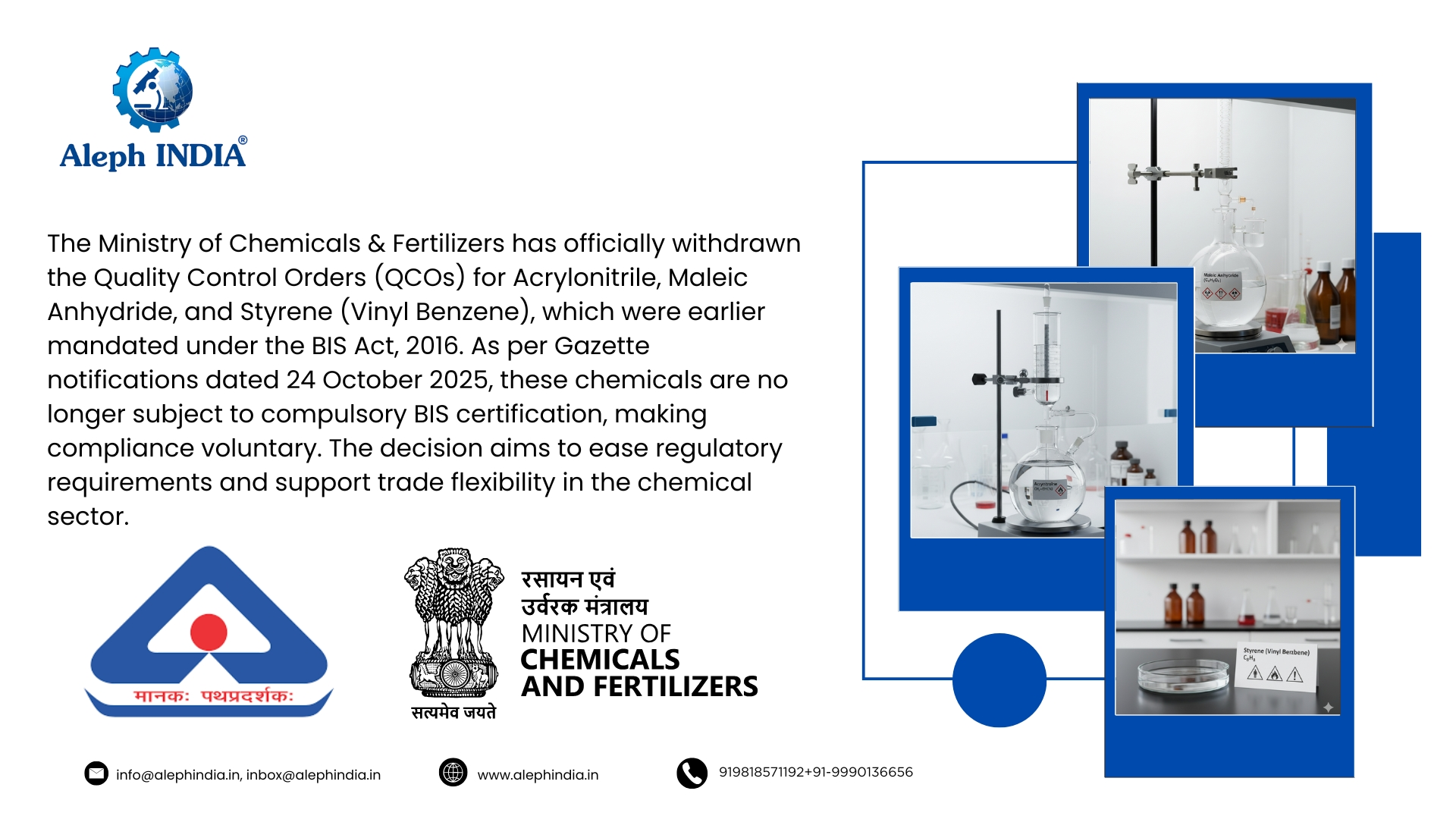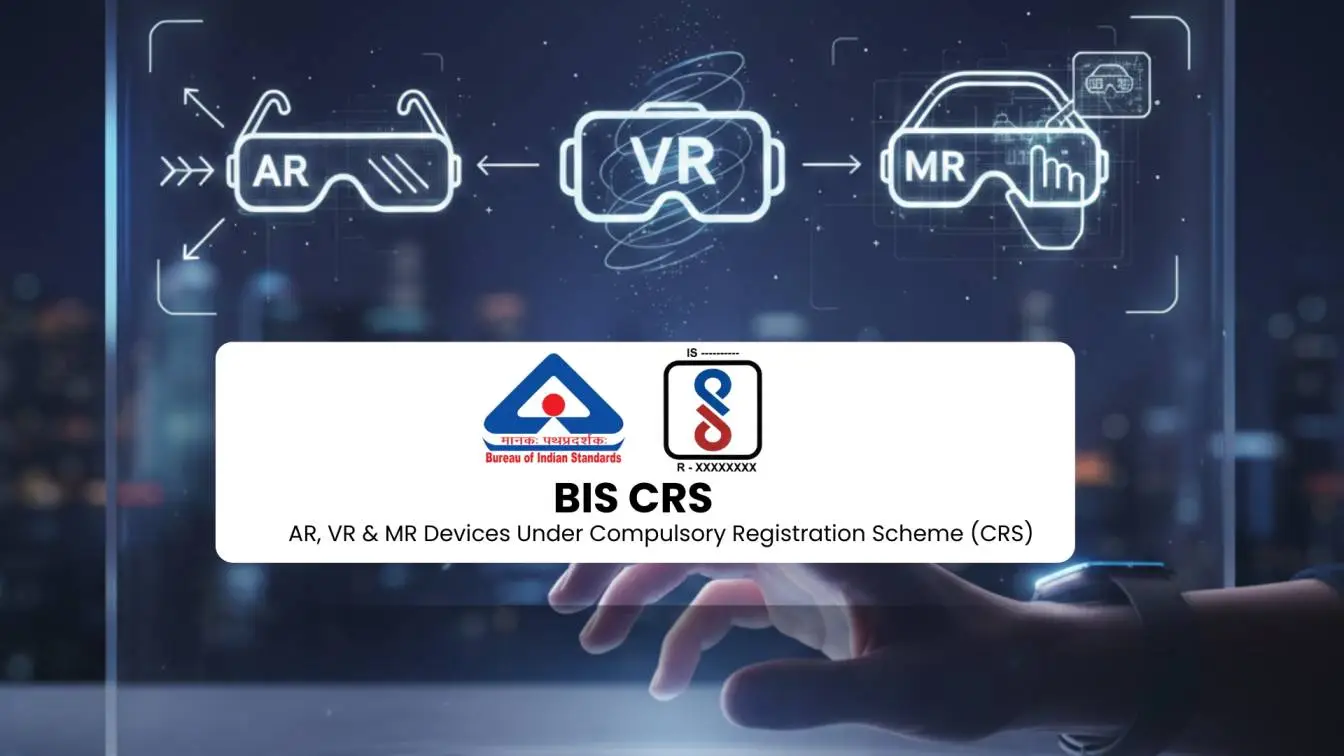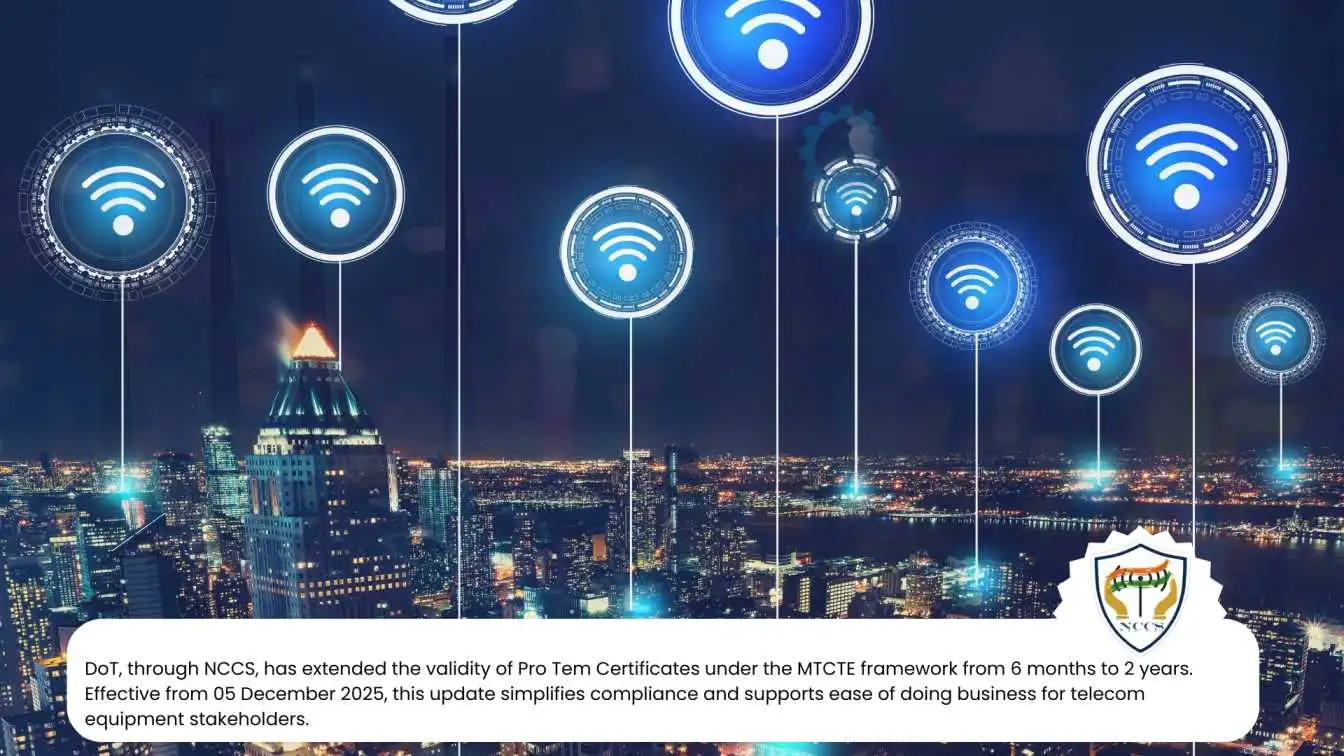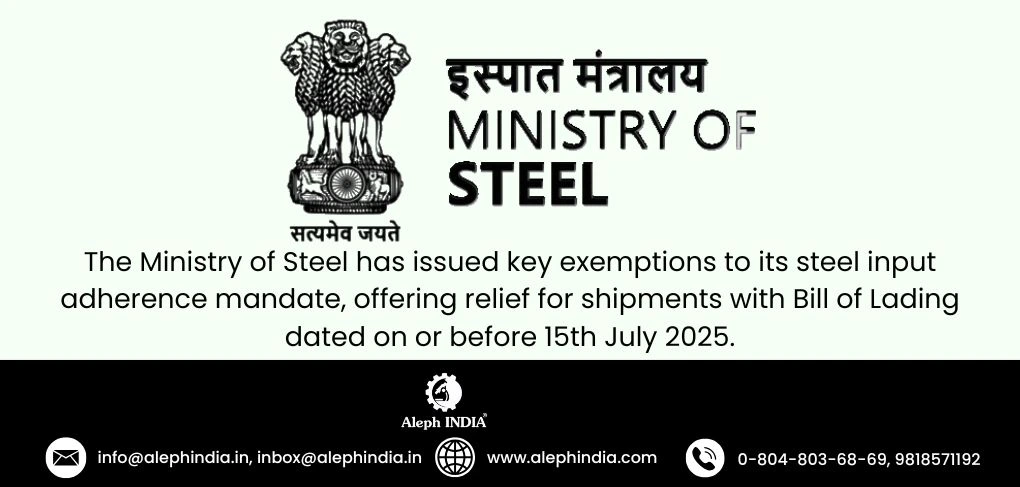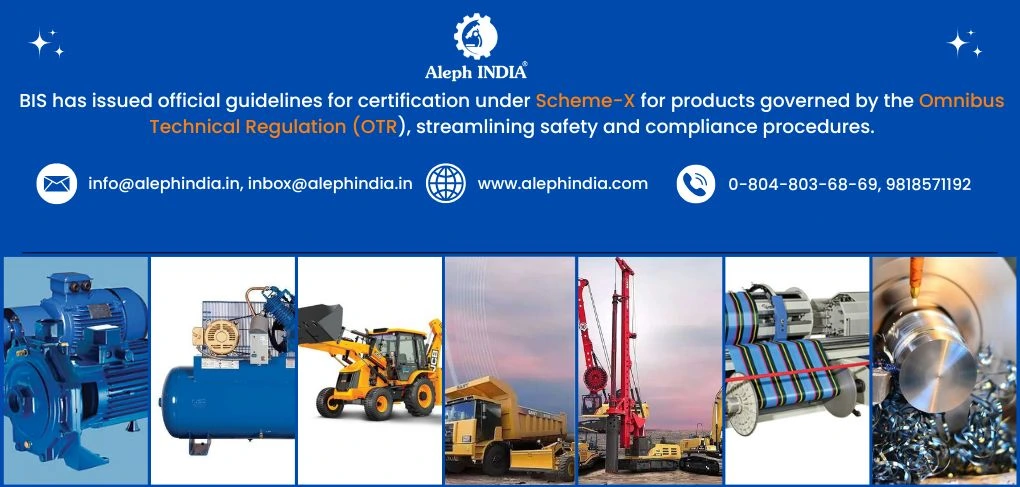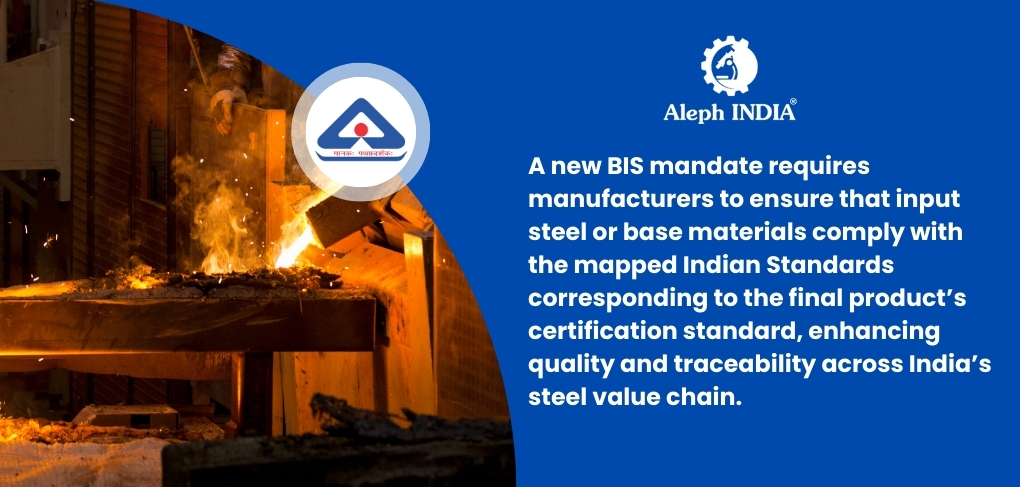- HOME
- ABOUT US
- SERVICES
-
LICENCE & CERTIFICATION
- BIS (ISI MARK) FOR FOREIGN MANUFACTURERS
- DOMESTIC PRODUCT CERTIFICATION (ISI MARK)
- BIS SCHEME X CERTIFICATION
- BIS CERTIFICATE OF CONFORMITY (CoC)
- BIS HALLMARKING
- REACH CERTIFICATION (GLOBAL)
- LABORATORY RECOGNITION SCHEME (LRS)
- WORLD MANUFACTURER IDENTIFIER (WMI) CODE
- ECO MARK
- TAC APPROVAL FOR AUTOMOBILE
- PESO CERTIFICATION
- SASO CERTIFICATION
- CDSCO CERTIFICATION
-
REGISTRATION
- BIS (CRS) REGISTRATION FOR ELECTRONIC PRODUCT
- WPC-ETA APPROVAL
- BEE CERTIFICATION
- E-WASTE MANAGEMENT (EPR)
- EPR REGISTRATION FOR PLASTIC WASTE MANAGEMENT
- EPR REGISTRATION FOR BATTERY WASTE MANAGEMENT
- EPR REGISTRATION FOR USED OIL
- LEGAL METROLOGY (LMPC)
- TEC/MTCTE APPROVAL
- CE CERTIFICATION
- UL CERTIFICATION
- ROHS LICENCE
- DRONE REGISTRATION
- MOEF LICENCE
-
AUXILIARY
- STANDARDIZATION (SCIENTIFIC) DIVISION
- TRAINING SERVICES (NATIONAL & INTERNATIONAL)
- IMPORT/EXPORT LICENCE
- FSSAI CERTIFICATION
- MSME/SSI/NSIC REGISTRATION
- ISO REGISTRATION
- BRAND REPRESENTATION
- LABORATORY EQUIPMENT AND SETUP
- TRADEMARK REGISTRATION
- MAKE IN INDIA SUPPORT
- AG-MARK LICENCE
- THIRD PARTY INSPECTION AND MONITORING SERVICES
-
- PORTFOLIO
- UPDATES
- CONTACT
- LOGIN
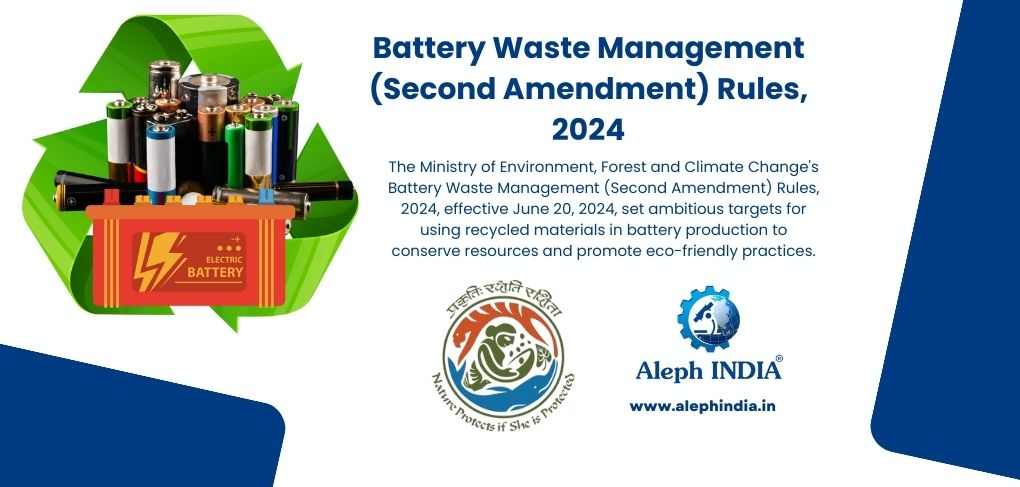
Battery Waste Management (Second Amendment) Rules, 2024
Championing Environmental Conservation with Battery Waste Management Amendments
In a landmark move towards environmental sustainability, the Ministry of Environment, Forest and Climate Change has introduced the Battery Waste Management (Second Amendment) Rules, 2024. Effective from June 20, 2024, these regulations set ambitious targets for the use of recycled materials in battery production, aiming to conserve resources and promote eco-friendly practices across the industry.
New Standards for Recycled Material Usage
The amended rules outline the minimum percentages of recycled materials required in the total dry weight of various types of batteries over the coming financial years. These standards are designed to gradually increase, driving the industry towards greater sustainability.
Minimum Use of Recycled Materials in Batteries
| Serial Number | Type of Battery | 2027-2028 | 2028-2029 | 2029-2030 | 2030-2031 and onwards |
|---|---|---|---|---|---|
| 1 | Portable | 5% | 10% | 15% | 20% |
| 2 | Electric Vehicle | 5% | 10% | 15% | 20% |
| 3 | Automotive | 35% | 35% | 40% | 40% |
| 4 | Industrial | 35% | 35% | 40% | 40% |
Driving the Future of Sustainable Battery Production
These regulations mark a significant step forward in India’s commitment to environmental stewardship. By mandating the use of recycled materials, the government aims to reduce waste, conserve natural resources, and minimize the environmental impact of battery production.
A Commitment to Green Innovation
The implementation of these rules not only fosters sustainability but also encourages innovation within the battery manufacturing sector. Companies are now incentivized to develop more efficient recycling processes and integrate sustainable practices into their production lines.
Conclusion: A Greener Tomorrow
The Battery Waste Management (Second Amendment) Rules, 2024, reflect a proactive approach to tackling environmental challenges. As these regulations take effect, they will play a crucial role in shaping a greener, more sustainable future for the battery industry and beyond.
Let’s embrace these changes and work together towards a more sustainable and environmentally friendly India.


